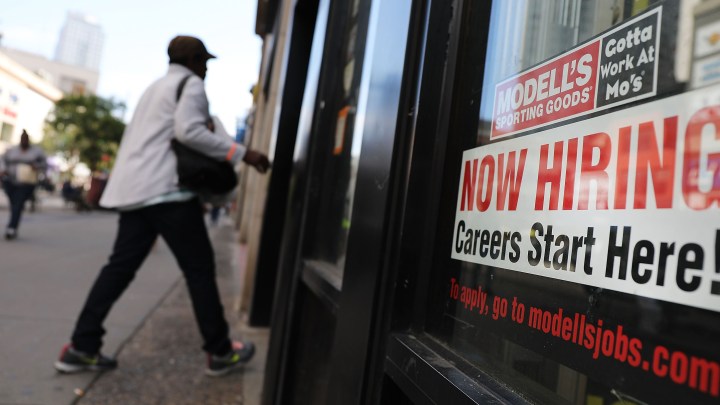
Holiday cheer: Jobless claims hit Beatles-era low

Another Thursday, another report on first-time jobless claims. And another number so low it’s almost off the charts.
The headline number: 206,000 new unemployment claims were filed last week, which is a good proxy for the number of workers laid off then.
That is a level that was unthinkable a year ago when claims were four times higher. But even before the pandemic, when the economy was dandy and we had full employment, claims were hardly ever that low.
The four-week moving average of initial claims, which irons out weekly fluctuations, is just under 204,000 — that’s lower than it’s been since 1969. That’s when the population was about one-third smaller than it is today.
So what might these historically low jobless claims be telling us about this economy?
Let’s go back to the Great Recession. Jobless claims didn’t come back down to pre-recession levels for five years.
This time around, economists did expect jobless claims to fall back, eventually, according to Bankrate analyst Mark Hamrick. But still, “we didn’t expect them to get back to The Beatles-era levels.”
Back in 1969, there were only half as many U.S. workers total, and The Beatles’ “You Never Give Me Your Money” was playing on the radio.
It’s also a big change from early in the pandemic, when millions were getting laid off and claiming unemployment every week.
That “did a great deal of damage to the notion and reality of job security,” Hamrick said. “Fast-forward all these many months later, the storyline has almost been turned totally upside down. It is the employer mounting the mighty struggle, retaining and finding workers.”
What we’ve got, said economist Robert Frick at Navy Federal Credit Union, is a flip in economic leverage from employers to employees.
“People will quit on a hair trigger right now, so employers are really holding on to them like mad,” he said. “So not only are we seeing layoffs go down, we’re seeing wages go up.”
The biggest risk going forward is another COVID-19 surge, which Frick said could push layoffs back up again, as each prior wave has.
But for the moment, let’s bask in some good news, care of economist Julia Pollak at ZipRecruiter — which is a Marketplace underwriter.
“Getting laid off or fired is one of the most stressful experiences, right up there with divorce and illness,” she said. “So it should bring some good holiday cheer to know that the chance that you’re going to get fired or laid off is unusually low right now.”
There’s a lot happening in the world. Through it all, Marketplace is here for you.
You rely on Marketplace to break down the world’s events and tell you how it affects you in a fact-based, approachable way. We rely on your financial support to keep making that possible.
Your donation today powers the independent journalism that you rely on. For just $5/month, you can help sustain Marketplace so we can keep reporting on the things that matter to you.

















